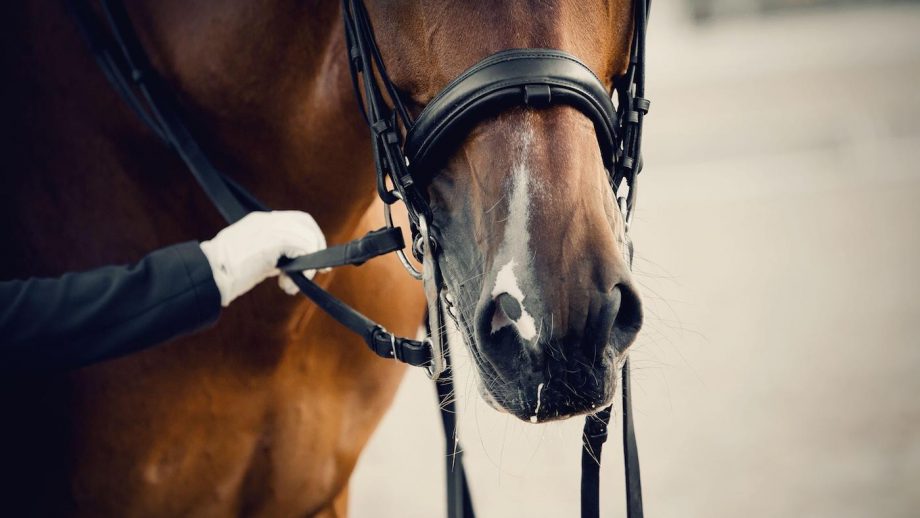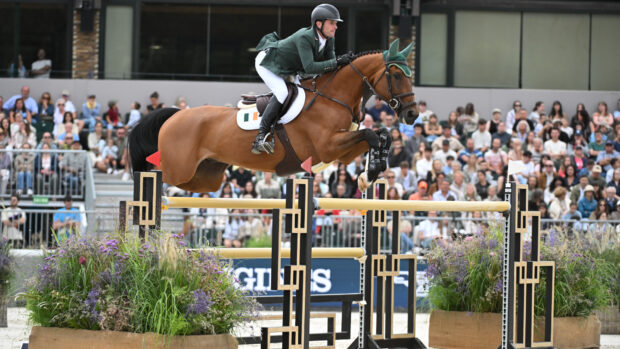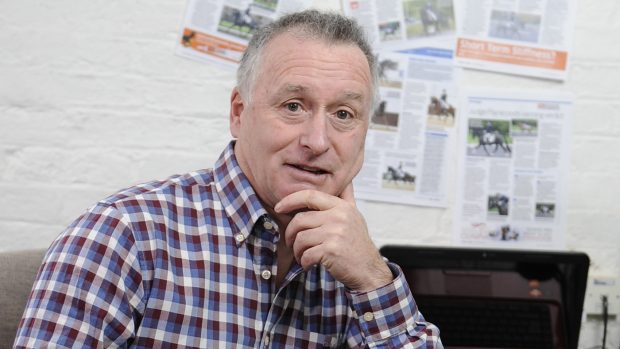Leading riders, coaches and veterinary professionals have joined forces to campaign for one of the industry’s biggest sponsors to help bring about “a new era for equestrian sport”.
A Change.org petition, to Longines CEO Matthias Breschan states: “Equestrian sports have several severe welfare issues. Question is, do their sponsors know what they are paying for?”
The petition, started by Norwegian author and podcaster Live Bonnevie, was signed at creation by FEI vet Svein H Bakke and former three-star FEI dressage judge Hege Trulsen, as well as other vets, musculoskeletal practitioners, riders and trainers.
It cites the fact that in 2012, Longines signed a long-term deal with the FEI, as the federation’s “top partner”.
“This was a moment that was described as the beginning of a new era for both equestrian sports and the FEI,” it states. “But what the equestrian sports really needed 10 years ago, and still need today, is a new era with a significantly stronger focus on horse welfare, not only written on documents but practised and implemented in real life.”
The text cites the undercover documentary filmed at the base of top Danish dressage rider Andreas Helgstrand, during which “highly questionable” conditions caused “global outrage” (news, 30 November), “mainly because it is regarded as a symptom, not a unique case”.
“The problems are not unique to dressage, but embrace the other sports as well, and we fear the horse industry itself is at the tipping point of losing its social licence to operate,” the petition states.
The signatories say they start with international events and grand prix dressage, asking Longines to question the FEI on issues including why double bridles are mandatory at grand prix, why “a horse showing clear signs of discomfort and stress” can be scored highly, and why 20 seconds of equine resistance is acceptable before elimination.
They also urge Longines to “question what we teach future generations of riders, if their role models fail to ensure the public that they can protect their horses from harm”.
Sue Dyson, former head of clinical orthopaedics at the Animal Health Trust, was also among the named, founder signatories.
She told H&H most of her co-signers are from Scandinavian countries, where the Helgstrand documentary was more widely viewed.
“I was at a meeting in Germany where everyone was talking about it,” she said. “It was very clear people were disappointed the FEI hadn’t been more proactive in showing they have a role in protecting equine welfare; their statement was pretty low-key.”
Dr Dyson added that she believes the petition is a good idea to raise awareness of the issues, and hopes Longines will put pressure on the FEI.
She cited the fact the FEI has not adopted recommendations, such as one to make double bridles optional in top-level dressage, made by the equine ethics and wellbeing commission.
“Why appoint the commission if you’re not going to listen to it?” she asked. “They worked hard to produce recommendations, which the FEI has chosen to ignore.”
Dr Dyson said she believes “not dissimilar” practices to those shown in the Helgstrand documentary could be found at many yards.
“Which was why the British Dressage convention last month was so refreshing,” she said. “What was on display was lovely, which shows it can be done well, and should be. If the FEI said ‘This is how it must be done’, and what judges must reward, it would encourage much better training, across the board.”
An FEI spokesman told H&H the FEI is “unwavering in its commitment to safeguarding the health and wellbeing of all horses participating in FEI events, and we approach this responsibility with the utmost seriousness”.
“We acknowledge the frustration, particularly when distressing images come to light,” he said. “Despite this, we remain steadfast in our dedication, actively addressing perceived or genuine welfare concerns within the scope of our legislative authority. Additionally, we are proactive in community education initiatives to ensure horses receive optimal care even beyond our jurisdiction. We recognise the importance of transparency and continually strive to enhance our efforts in promoting the welfare of all horses involved in FEI events.”
The spokesman added that horse welfare is “at the core of our values and regulations”, and that “any action or omission which causes or is likely to cause pain or unnecessary discomfort to a horse constitutes a violation of our rules”.
“We are committed to ensuring horses involved in sport experience positive welfare throughout their lives, and that the FEI’s regulations, policies and practices, as well as the wider community’s actions, reflect these principles, and we will continue to address actions and behaviours that are in contradiction with our values,” he said.
The spokesman said all the resources and measures used by the FEI to “proactively address and mitigate welfare risks for horses” are not always widely known, but “it is important to stress that this is the driving factor behind the FEI’s decision-making process and planning”.
“The equine ethics and wellbeing commission delivered their final report to the FEI board in Mexico last month; the final recommendations are being carefully reviewed to establish actionable items and an implementation plan,” he said. “These are high on the FEI’s agenda, with a roadmap for discussion and implementation to be presented at the FEI sports forum 2024. It is important to highlight that some of the recommendations have already been put into play.
“As for the FEI position on the use of the double bridle in grand prix dressage, the FEI is committed to fact-based decision-making and remains open to future rule changes founded on meaningful scientific evidence that would indicate any welfare shortcomings based on its use.
“The FEI encourages all acts of free speech, and especially the opportunity for individuals to express their views and concerns in relation to horse welfare, and remains committed to addressing the concerns raised, and optimising the systems in place to proactively promote equine welfare, mitigate any risks to welfare and raise awareness around the community’s role and the existing processes, mechanisms and systems already in place to safeguard the wellbeing of horses in our sport.”
You might also be interested in:

Calls for double bridles to be optional fall on deaf ears – again

‘Riders should have the choice’: fresh debate on double bridles in dressage

Anna Ross: why not allow riders a choice of bridle in top FEI grand prix dressage?

Subscribe to Horse & Hound magazine today – and enjoy unlimited website access all year round
Horse & Hound magazine, out every Thursday, is packed with all the latest news and reports, as well as interviews, specials, nostalgia, vet and training advice. Find how you can enjoy the magazine delivered to your door every week, plus options to upgrade your subscription to access our online service that brings you breaking news and reports as well as other benefits.



